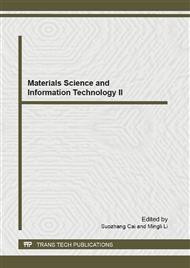p.1636
p.1640
p.1645
p.1649
p.1654
p.1659
p.1664
p.1670
p.1675
Study on Coarse-Grained Parallel Genetic Algorithm
Abstract:
The genetic algorithm is a powerful global search and optimization technique based on the principles of natural selection and genetics, but it is not suitable in solving large-scale and complicated problems due to its the shortcomings in computational accuracy and efficiency. Against these deficiencies, a coarse-grained parallel genetic algorithm (PGA) model based on distributed cluster system is proposed in this paper. Flow chart about the model is designed and detailed analysis of migration scheme is offered. This paper investigates the parallel efficiency of the coarse-grained PGA and migration operator by experiments on a specific inverse heat conduction problem .The experimental results show that the model can achieve upper speedup rations, improve computational efficiency and the overall performance of the PGA.
Info:
Periodical:
Pages:
1654-1658
Citation:
Online since:
June 2012
Keywords:
Price:
Сopyright:
© 2012 Trans Tech Publications Ltd. All Rights Reserved
Share:
Citation:


